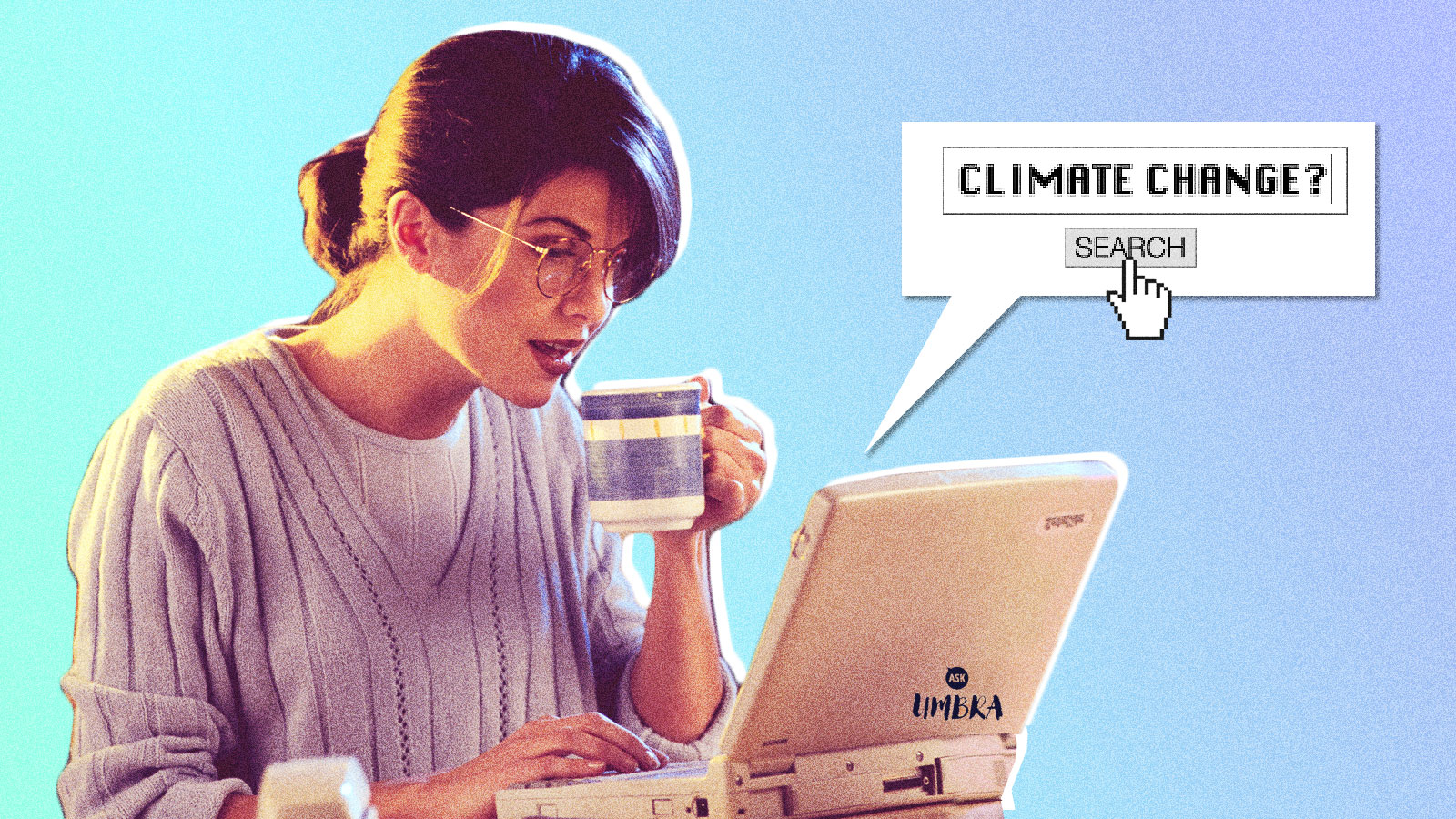Q. Dear Umbra,
In an attempt to connect with me, my dad’s girlfriend bought me a book for my birthday that seems to be a pretty popular (albeit not overt on the surface) climate denier text. After 20-plus years of meeting my dad’s girlfriends I’m fairly used to them using the fact I care about the environment to try to make a connection — usually some well-meaning version of “I always recycle!” or “Have you heard of composting?” But this latest attempt has me completely shook.
She’s really proud that we made a connection and keeps asking me what I think of the book. She is even talking about buying herself a copy. I have absolutely no idea what to say. I don’t want to now be inadvertently responsible for turning her into a denier! Help?
— Stifling Outrage, Nicely
A. Dear SON,
The combination of family dynamics — divorced-parent family dynamics, no less — and climate change debate makes for an aggressively unpleasant cocktail, and my heart goes out to you. But a close read of your question gives me hope for your situation. Your dad’s girlfriend — let’s call her Georgina because, I don’t know, let’s just have a little fun where we can — hasn’t exactly signed up for QAnon yet. She’s just starting to read and think about climate change. Perhaps my bar is too low, but that puts her far ahead of many millions of others who know relatively little about the planet!
But, as you point out, misinformation can send burgeoning climate curiosity down a pretty dark path. People get radicalized for a litany of reasons: They’re lonely, they’re frustrated with life and are looking for a source of their problems that’s outside of their own actions, or they’re looking for some sort of purpose. I don’t know if any of these apply to your father’s girlfriend, and she might not be in much danger of falling prey to climate conspiracy theories. But at least she is asking you to help shape her views on climate change. That is what all kinds of experts say is the most crucial activism you can do: persuading the people close to you that climate action is crucial.
But I have to add a caveat here: There’s something a teensy bit gross about leveraging your personal relationships to achieve your political goals, no matter how morally noble those goals might be. Georgina is a human with her own motivations and values, after all, and not just a potential convert to the climate cause.
And fundamentally, your dad’s girlfriend is just trying to find some common ground with you. That’s all. She’s not trying to convert you to anything, nor is she pledging the Climate Cause Club. She’s excited because she thinks she’s found something for you two to talk about that’s separate from your dad, something that can bring you closer together. And hasn’t she? You are very interested in environmental issues and climate change, and you clearly would have a lot to say on this particular tome!
I think it’s a demonstration of good will to tell her honestly and respectfully how you feel about whatever claims are made in this book, because she is asking for your opinion! She may not take it as a personal affront, despite the fact she gifted you this flawed text. The best way to go into any conflict, really, is to expect the best of the person you’re speaking with. I understand that may be difficult because it involves parental relationship dynamics, which can easily drag us back to our most sullen, passive-aggressive teenage selves! You may be an adult now, but you’ve been meeting these partners for years and you’re tired. That’s enough to make anyone have a 30-going-on-13 moment.
You have met 20 years’ worth of your dad’s girlfriends, so I certainly understand the impulse to not feel like putting any emotional labor in another one. Perhaps part of you feels a little resentment at being asked to build a relationship with yet another partner, especially via a conversation about a serious, identity-defining topic like the demise of a livable planet.
But even though this conversation will likely be anxiety-producing, I don’t recommend sweeping it under the rug. For better or for worse, Georgina is trying. She’s not asking you about plastic straws, she hasn’t forwarded you an Instagram post from Gwyneth Paltrow showing off her new $4,000 home composter. She heard that this book was meaningful in your sphere in some way, so she thought you’d find it interesting. And now she’s excited that it’s interesting to her too!
Perhaps it would help, in this context, to not think of her as your dad’s girlfriend. Think of her as a friend — doesn’t even have to be a close friend! — who has some questions for you about climate issues, since she knows that you’re knowledgeable in that area.
Here’s how I would approach this situation: Thank Georgina for the book, and acknowledge that some of your colleagues have mentioned some controversy around it, so you are looking forward to reading it and seeing what it’s all about. Ask her which parts she found most interesting. And if you see a place where there’s some misinformation or a bad-faith argument, say that directly! It doesn’t need to be in a condescending way — something along the lines of: “Ah yes, I see this argument made a lot in my work and it sounds great for this reason, but I find that it’s misleading in the following ways, etc.”
Georgina can react to that pushback — gentle, compassionate pushback, remember — however she wants. She might shut down, in which case you know not to talk about climate again. She might be enthusiastic about learning more, in which case maybe you could share with her one of your favorite books on the topic. She might not say much at all, suggesting that maybe she’s not actually that interested in climate issues.
I think a great deal of people have seen some relationships end over ideological differences over the past four-ish years, but that doesn’t mean it’s not worth trying to see where this particular thread takes you. As long as you go into the conversation with the intention to be kind and respectful, you’re not wholly responsible for any of those reactions, because you’re talking to another human being! Any conversation that’s attempting to impart your values onto another person needs to acknowledge that other people aren’t just there to be manipulated.
I also understand that it’s 2020, and everyone is tired. If all of the above sounds incredibly exhausting, no one is forcing you to take it on. You can just say: “Georgina, thanks for the book, can’t wait to see you whenever the world is functional again.” But I will say that it’s often a relief to step outside so much of the frothy-mouthed shrieking that proliferates online and simply discuss a piece of writing with another real, live human being.
Diplomatically,
Umbra




